Abstract
Research on reaching, tracking, and catching in the pigeon has been hampered by limitations of technology. A new system was developed in which the target was a small rectangle presented on a video display terminal and the pecking response was detected with touch technology. The target moved up and down vertically with sinusoidal velocity. A coincidence between the location of the pigeon's beak and the cursor produced reinforcement. The pigeon pecked ahead and behind the target, but most pecks occurred behind the target so the dominant tracking strategy was lagging. The pigeon was adept at “catching” the target at many locations throughout the trajectory. Transfer of motor learning was tested on probe trials during which the trajectory changed from vertical to horizontal. On transfer trials the pigeons' dominant pattern of pecking immediately shifted from vertical to horizontal. The motor skill displayed by the pigeons was flexible and adaptive, suggesting that the pigeons had learned to track the cursor.
Keywords: tracking, catching, reaching, stimulus control by movement, transfer of training, motor behavior, peck, pigeons
Full text
PDF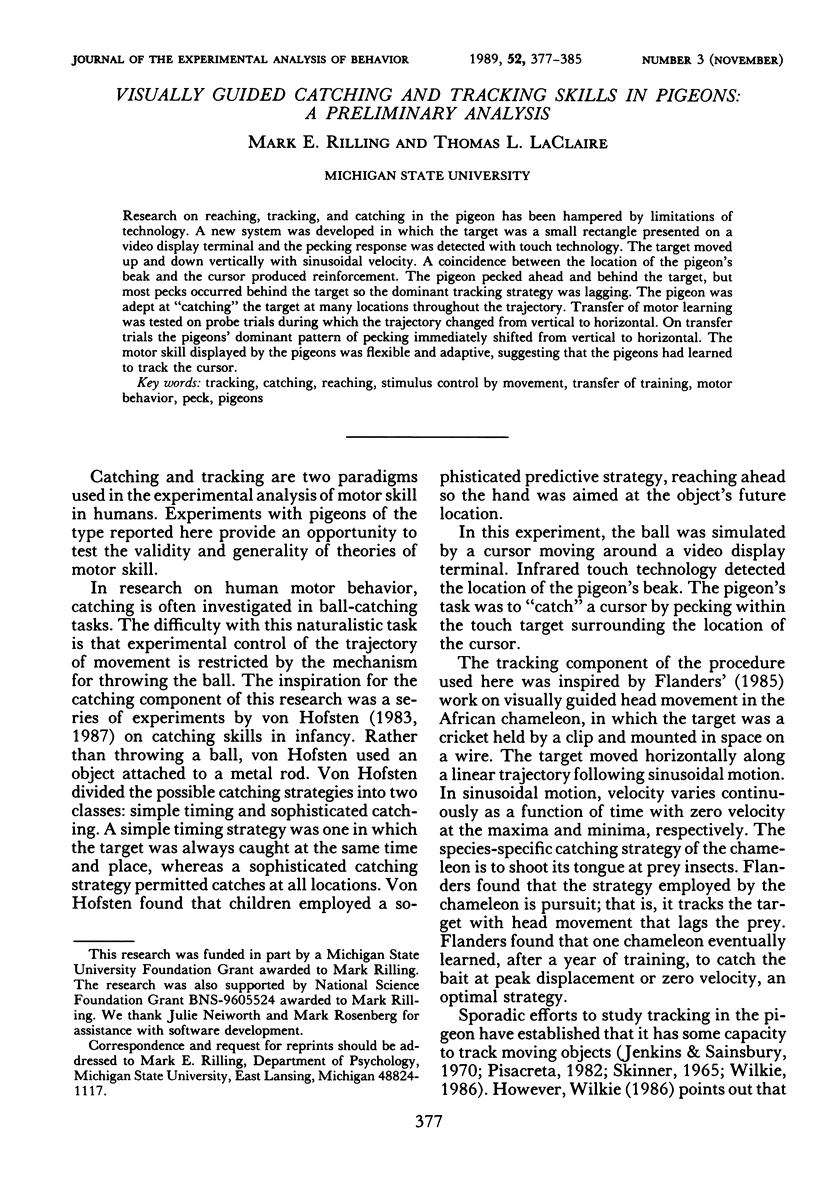
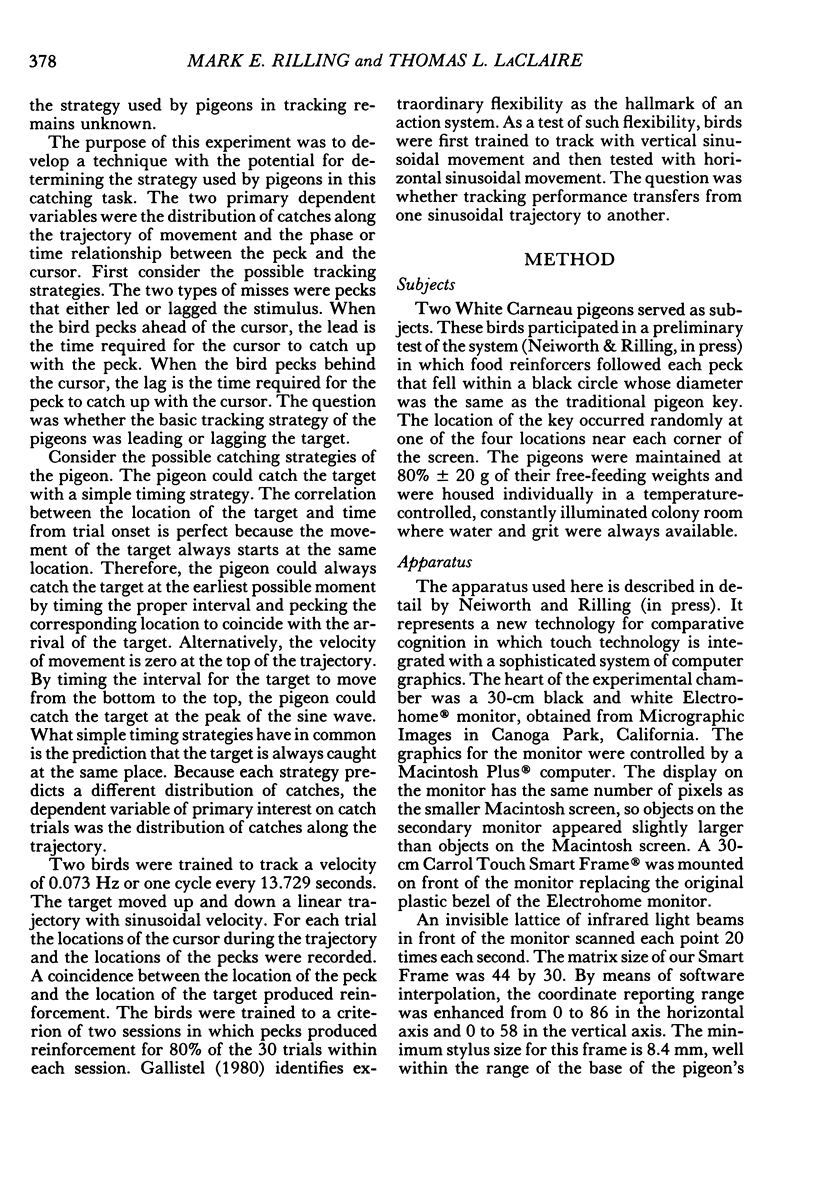
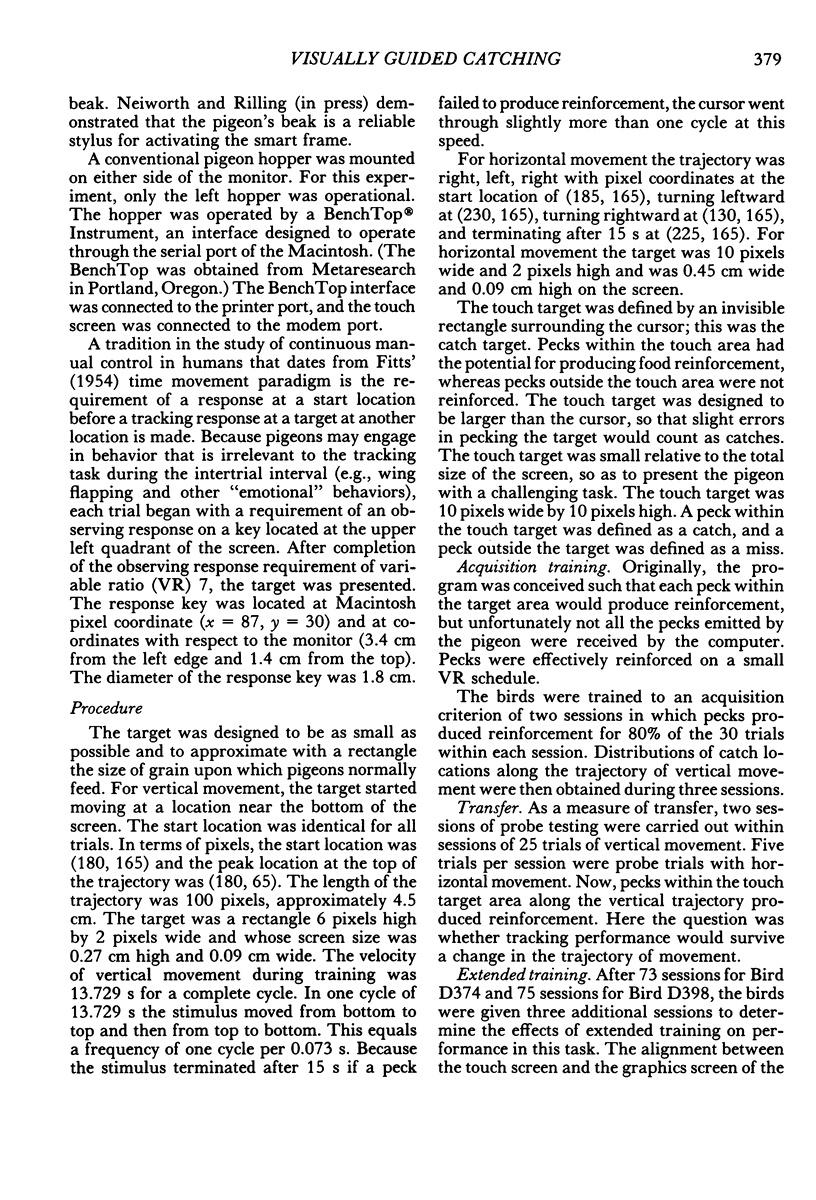
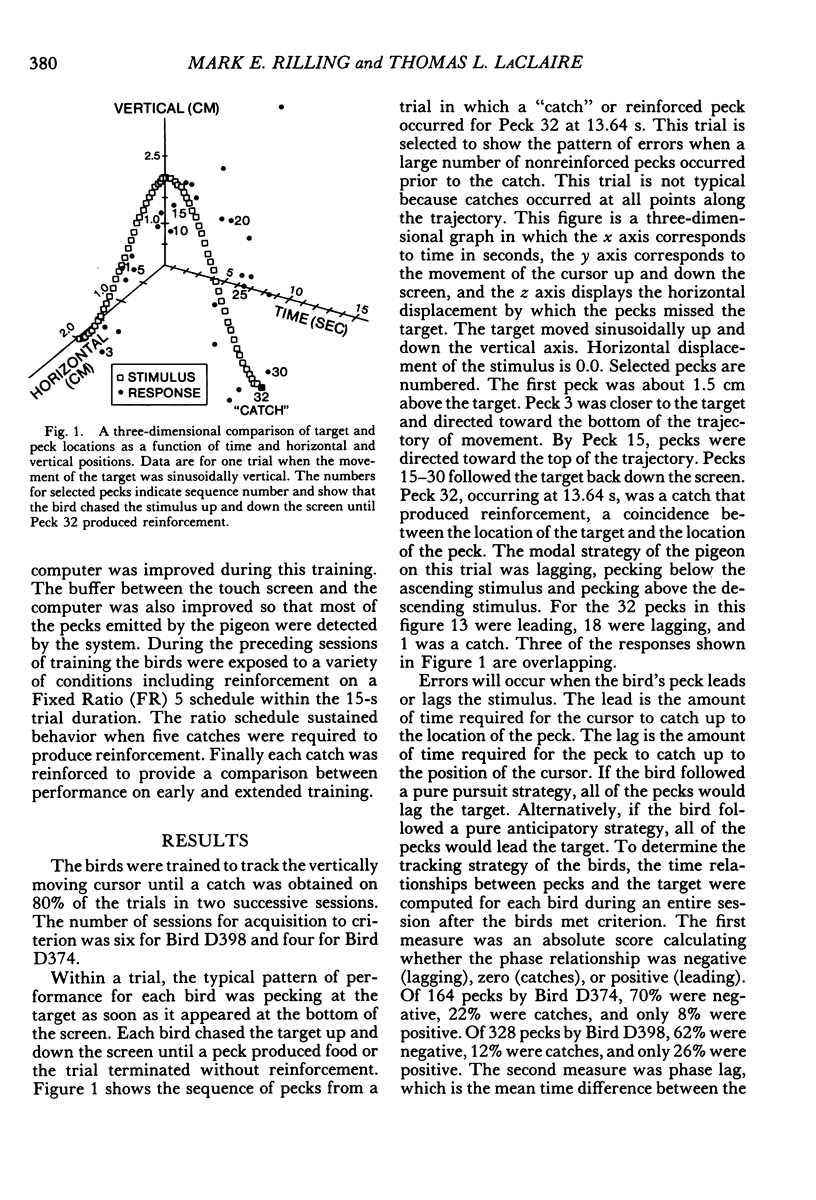
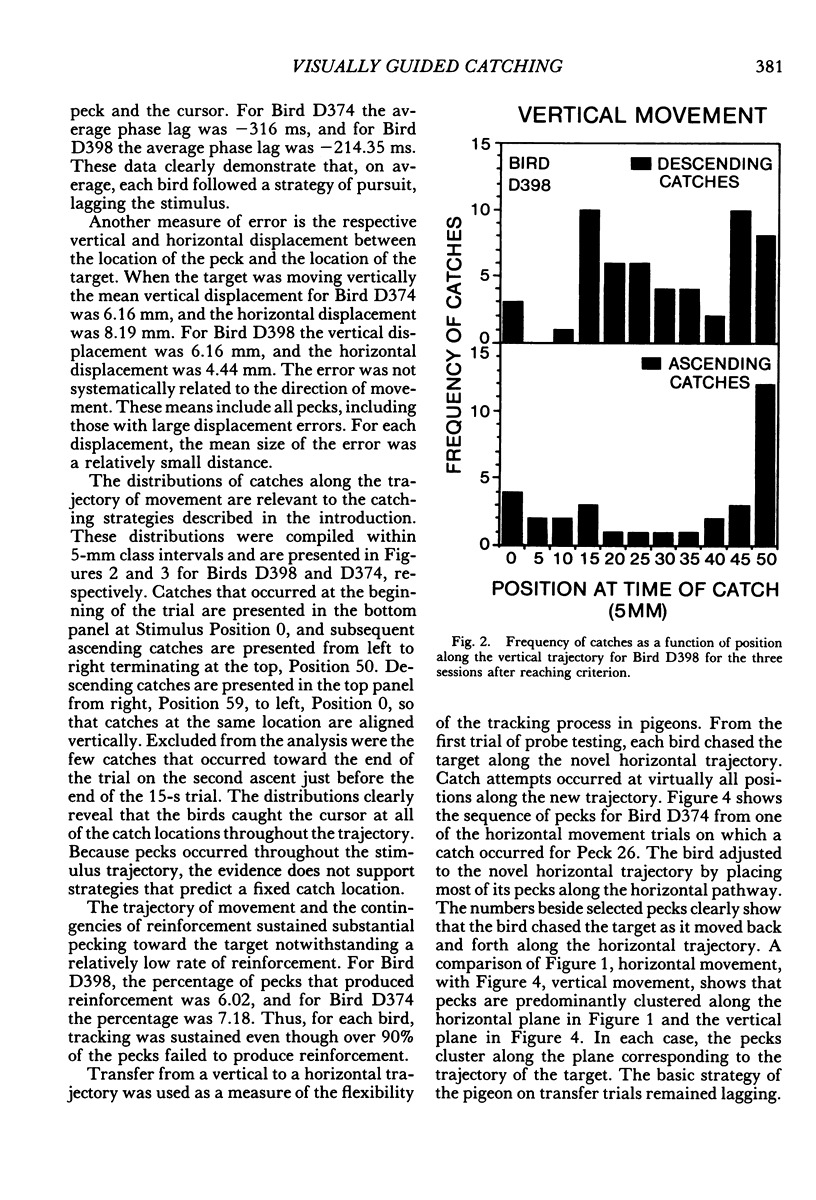
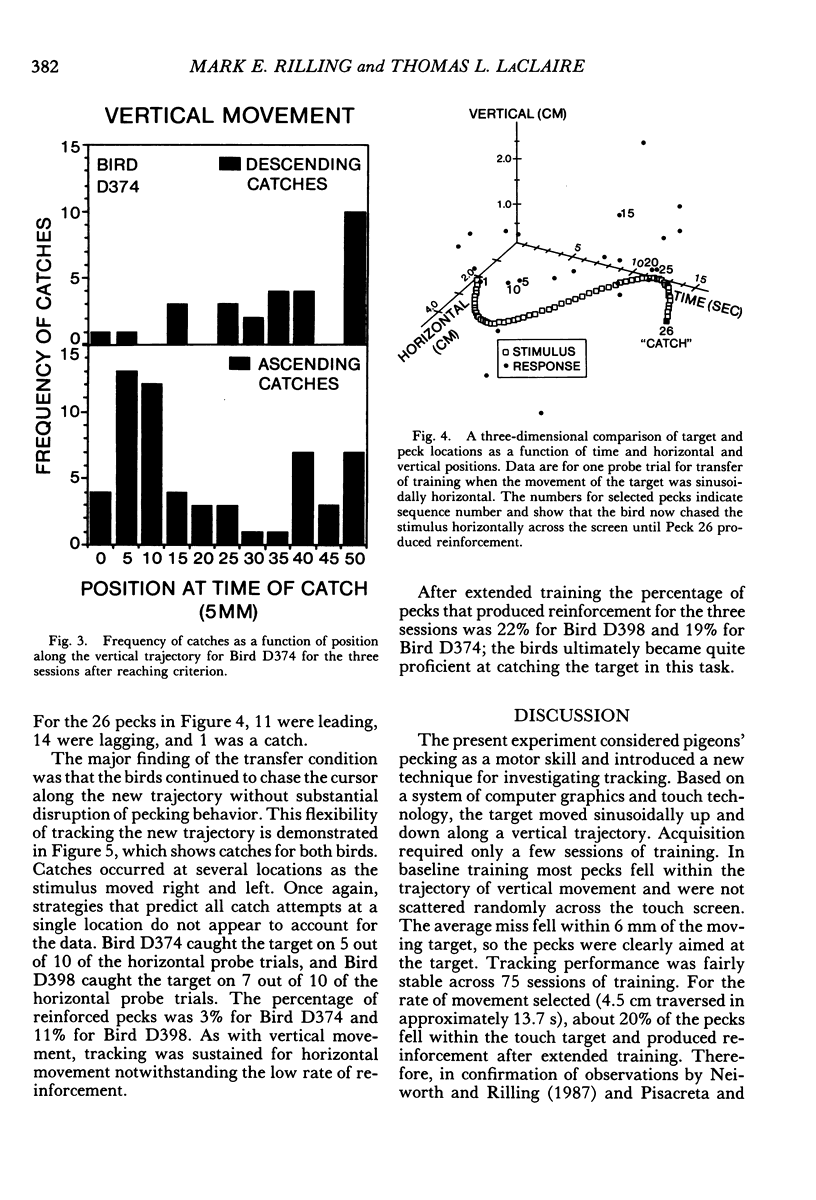
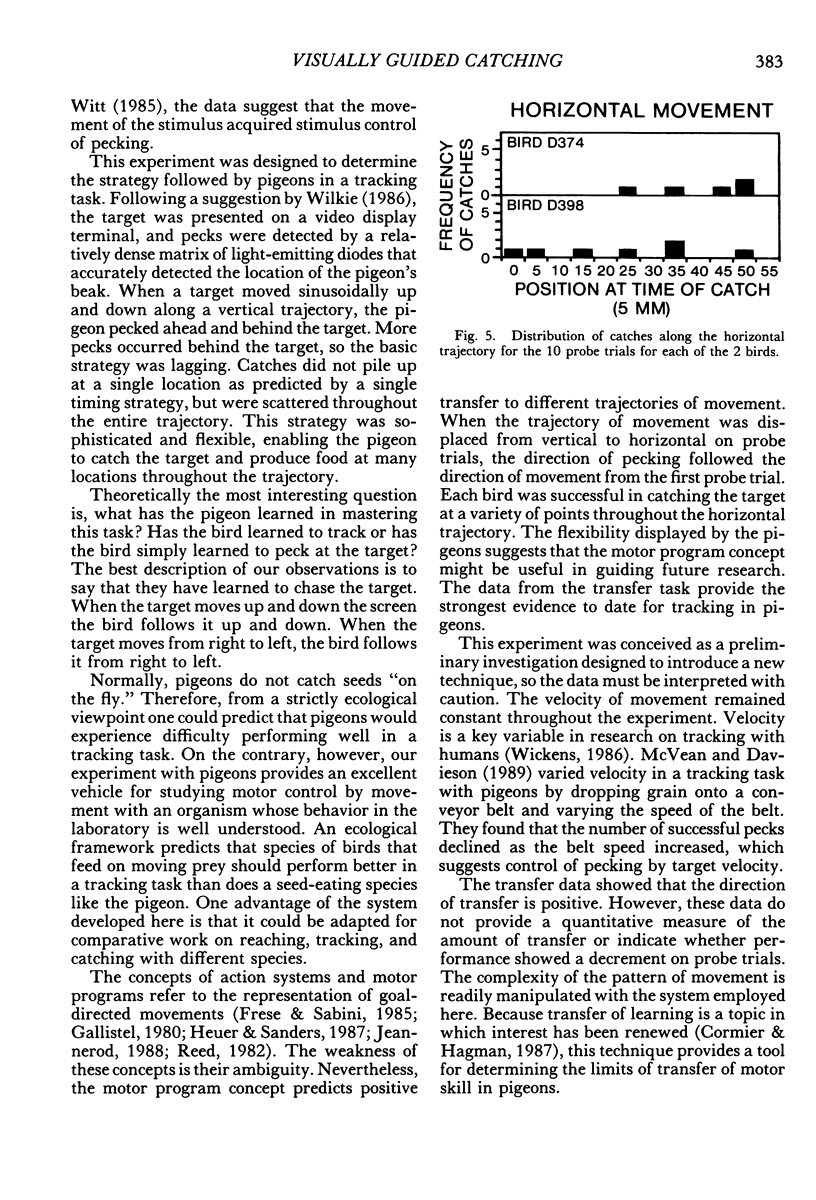
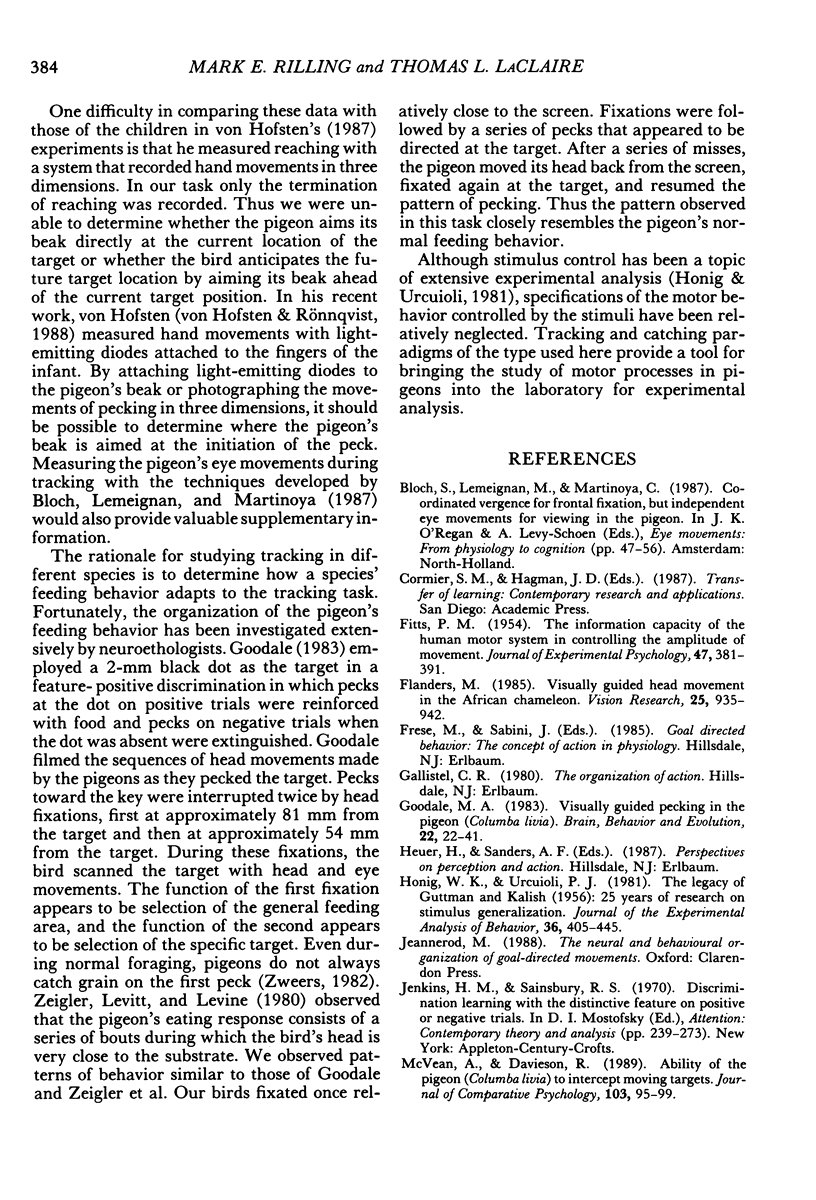
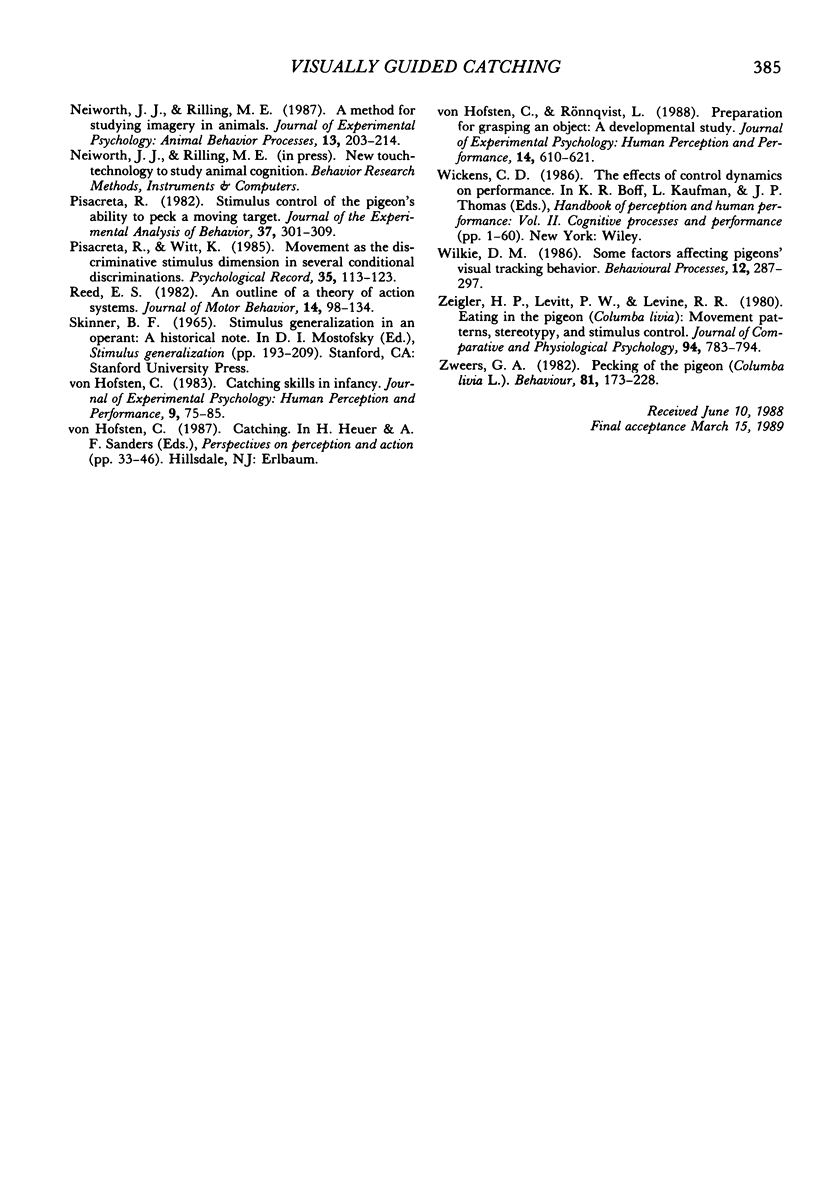
Selected References
These references are in PubMed. This may not be the complete list of references from this article.
- FITTS P. M. The information capacity of the human motor system in controlling the amplitude of movement. J Exp Psychol. 1954 Jun;47(6):381–391. [PubMed] [Google Scholar]
- Flanders M. Visually guided head movement in the African chameleon. Vision Res. 1985;25(7):935–942. doi: 10.1016/0042-6989(85)90204-4. [DOI] [PubMed] [Google Scholar]
- Goodale M. A. Visually guided pecking in the pigeon (Columba livia). Brain Behav Evol. 1983;22(1):22–41. doi: 10.1159/000121504. [DOI] [PubMed] [Google Scholar]
- Honig W. K., Urcuioli P. J. The legacy of Guttman and Kalish (1956): Twenty-five years of research on stimulus generalization. J Exp Anal Behav. 1981 Nov;36(3):405–445. doi: 10.1901/jeab.1981.36-405. [DOI] [PMC free article] [PubMed] [Google Scholar]
- Pisacreta R. Stimulus control of the pigeon's ability to peck a moving target. J Exp Anal Behav. 1982 Mar;37(2):301–309. doi: 10.1901/jeab.1982.37-301. [DOI] [PMC free article] [PubMed] [Google Scholar]
- Reed E. S. An outline of a theory of action systems. J Mot Behav. 1982 Jun;14(2):98–134. doi: 10.1080/00222895.1982.10735267. [DOI] [PubMed] [Google Scholar]
- von Hofsten C., Rönnqvist L. Preparation for grasping an object: a developmental study. J Exp Psychol Hum Percept Perform. 1988 Nov;14(4):610–621. doi: 10.1037//0096-1523.14.4.610. [DOI] [PubMed] [Google Scholar]


